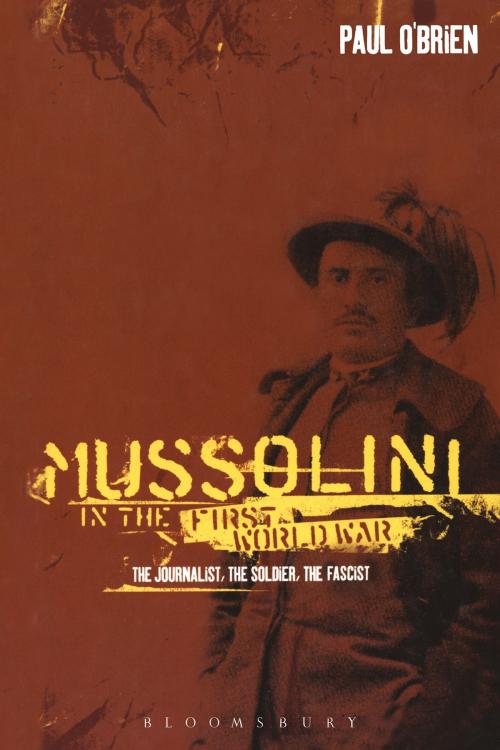Mussolini in the First World War
The Journalist, the Soldier, the Fascist
Nonfiction, History, Military, World War I, Social & Cultural Studies, Political Science| Author: | Dr Paul O'Brien | ISBN: | 9781472578112 |
| Publisher: | Bloomsbury Publishing | Publication: | March 4, 2014 |
| Imprint: | Bloomsbury Academic | Language: | English |
| Author: | Dr Paul O'Brien |
| ISBN: | 9781472578112 |
| Publisher: | Bloomsbury Publishing |
| Publication: | March 4, 2014 |
| Imprint: | Bloomsbury Academic |
| Language: | English |
How did Benito Mussolini come to fascism? Standard accounts of the dictator have failed to explain satisfactorily the transition from his pre-World War I 'socialism' to his post-war fascism. This controversial new book is the first to examine closely Mussolini's political trajectory during the Great War as evidenced in his journalistic writings, speeches and war diary, as well as some previously unexamined archive material. The author argues that the 1914-18 conflict provided the catalyst for Mussolini to clarify his deep-rooted nationalist tendencies. He demonstrates that Mussolini's interventionism was already anti-socialist and anti-democratic in the early autumn of 1914 and shows how in and through the experience of the conflict the future duce fine-tuned his authoritarian and totalitarian vision of Italy in a state of permanent mobilization for war. Providing a radical new interpretation of one of the most important dictators of the twentieth century, Mussolini in the First World War will appeal to anyone who wants to learn more about the roots of fascism in modern Europe.
How did Benito Mussolini come to fascism? Standard accounts of the dictator have failed to explain satisfactorily the transition from his pre-World War I 'socialism' to his post-war fascism. This controversial new book is the first to examine closely Mussolini's political trajectory during the Great War as evidenced in his journalistic writings, speeches and war diary, as well as some previously unexamined archive material. The author argues that the 1914-18 conflict provided the catalyst for Mussolini to clarify his deep-rooted nationalist tendencies. He demonstrates that Mussolini's interventionism was already anti-socialist and anti-democratic in the early autumn of 1914 and shows how in and through the experience of the conflict the future duce fine-tuned his authoritarian and totalitarian vision of Italy in a state of permanent mobilization for war. Providing a radical new interpretation of one of the most important dictators of the twentieth century, Mussolini in the First World War will appeal to anyone who wants to learn more about the roots of fascism in modern Europe.















